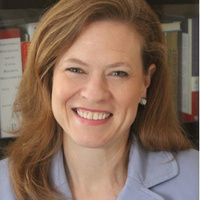Why the Problem is Wealth and How We Create It by Elizabeth Hinson-Hasty
Why begin a discussion about wealth inequalities and poverty from the perspective that the problem is wealth? There are enough resources in the world to fulfill everyone’s need, so obviously it is a problem when people lack access to basic necessities such as housing, food, education, health care, etc. However, does focusing on the circumstances of people living in poverty enable us to understand the root causes of inequalities in access to resources and severe disparities in income, opportunity and wealth? Anthropologist Laura Nader observes, “the quality of life and our lives may depend upon the extent to which citizens understand those who shape attitudes and actually control institutional structures” (Nader, “Up the Anthropologist—Perspectives from Studying Up,” 285).
In churches and in the academy, we often ask why people are poor and investigate the material deprivation experienced by people in poverty. This type of investigation is important work, but we must dig deeper. Seldom do we challenge ourselves to consider how our current dominant forms of wealth creation are tied to and arguably create poverty. One of the primary goals of my new book on The Problem of Wealth is to frame the right questions so that we can better understand how we in the USA live in a nation so rich in resources—natural, human, and financial—and yet still have 46.7 million people living in poverty (US Census data 2014).
The conversation that I hope to foster is rooted in perspectives emerging from the world’s great religious traditions. Native American spirituality emerges from a deep understanding of reciprocity, sharing and belonging to a whole community of living organisms—people and the earth. Judaism emphasizes through Sabbath-practice the freeing of people and the land from perpetual bondage and debt. Economics and the distribution of wealth are at the heart of Christian theology and ritual. The only tradition tracing its origin to the story of Abraham, Sarah and Hagar that maintains the prohibition of usury is Islam. The book challenges us to ask critical questions that will bring economics and theology into dialogue, hold self-interest and common interest in balance, examine our own privilege, consider new ways of living by an ethic of enough, and invite us to think about the crucial role that people of faith can play today in economic justice.
This blog series will underscore important themes raised in my new book and invite you into conversation with scholars and religious leaders about the problem of wealth. Bloggers in this series include Devin Singh, Dartmouth College, Grace Ji-Sun Kim, Earlham School of Religion, Stephen Ray, Garrett-Evangelical School of Theology, Rabbi Joseph Rapport, The Temple, Rob Fohr, Mission Responsibility Through Investment (PCUSA), and Don Richter, Louisville Institute. I hope you will respond with your questions, add your insights about the context in which you live, and post additional resources so that we can build a lexicon for a more just economy and traverse the contemporary divide between economics and theology.
The Rev. Dr. Elizabeth Hinson-Hasty is chair of the department of theology at Bellarmine University and professor of theology. Recently, she served as a research consultant for the World Council of Churches’ North American Regional Forum and Hearings on Poverty, Wealth, and Ecology. Her publications include, The Problem of Wealth: A Christian Response to a Culture of Affluence (Orbis 2017), Dorothy Day for Armchair Theologians (2014), and Beyond the Social Maze: Exploring the Theological Ethics of Vida Dutton Scudder (2006). She also served as co-editor of Prayers for the New Social Awakening (2008) with Christian Iosso and To Do Justice: A Guide for Progressive Christians (2008) with Rebecca Todd Peters. Among other honors and awards, she is an LPTS Distinguished Alum (2016), a Fulbright Scholar (Hungary 2010) and a Wilson Wyatt Faculty Fellow (2010). She and her partner, Lee, make their home in the Highlands of Louisville with their two children, Garrison and Emme, and their dog, Bacsi.

